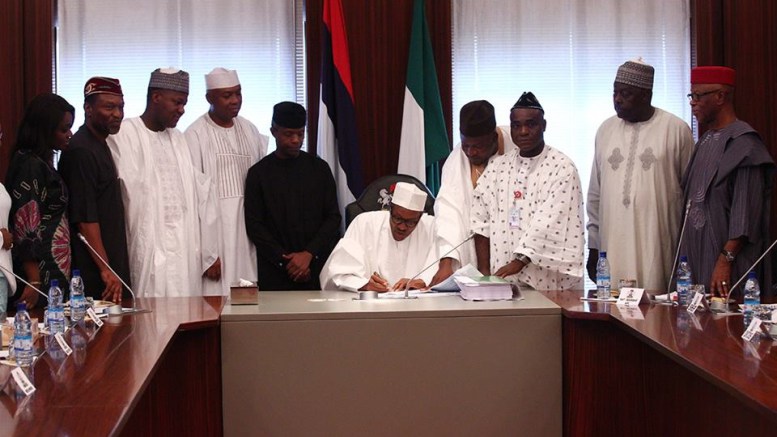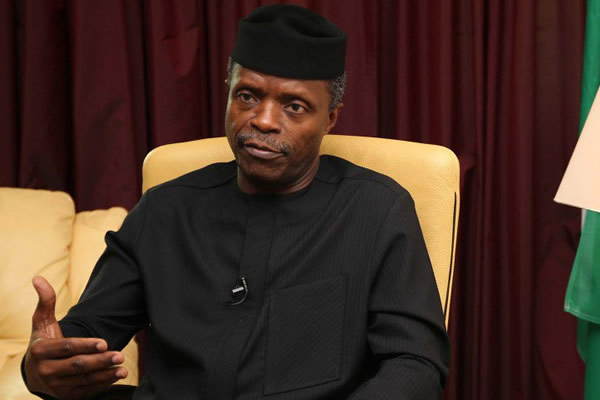
Federal Government through the National Economic council has arm twisted state governors to approve the release of $1 billion from the country’s excess oil account to the government to help fight the Boko Haram Islamist insurgency. The government had told Nigerians that Boko Haram has been technically defeated. The release of $1billion from the excess crude account to fight Boko Haram at a time the government is borrowing to fund infrastructure has raised suspicion in several financial quarters in the country.
The excess crude account holds foreign reserves from excess earnings from sales of crude above the budget bench mark. The account at the moment has a total of $2.3 billion, according to Nigeria’s accountant general. With the release of $1billion to the federal government the account will now have a balance of $1.3 billion. The fund in the excess crude account belongs to the three tiers of government. It is yet to be seen if the Local Government Council are in support of the ordered withdrawal of the amount without their input.
Disclosing the decision to withdraw the amount from the account Godwin Obaseki, Edo state governor said “We are pleased with the federal government achievements in the insurgency war and in that vein state governors have approved that the sum of $1 billion be taken from the excess crude account by the federal government to fight the insurgency war to its conclusion. The money will cover the whole array of needs which includes purchase of equipments, training for military personnel and logistics,” he told reporters after a meeting of the National Economic Council.
The release of such a large sum could raise concerns over corruption, endemic in Nigeria.
The next presidential and gubernatorial national elections are scheduled for February and March 2019. Historically, the run-up to elections has seen rampant graft and theft of public funds as politicians build war chests to contest the vote. The insurgency in the northeast is in its ninth year. Deadly attacks on the military and civilians continue, and large areas are out of government control.
Officials have siphoned off funds meant for aid for 8.5 million people in the region. In October, President Muhammadu Buhari sacked the country’s top civil servant, accused of having inflated the value of contracts for aid projects, part of a suspected kickback scheme. The United Nations appealed to donors for $1.05 billion to fund humanitarian aid in the northeast in 2017, and says it will require another $1.1 billion in 2018. Nigeria, which has Africa’s largest economy, has come under fire for devoting little of its own resources to humanitarian aid.
Military officials, speaking on condition of anonymity, have said troops are undersupplied and underpaid, with weapons, vehicles and other basic equipment often in disrepair or lacking. Some have alleged their own officers are skimming from already-meagre supplies.
The release of the funds is a further sign the Nigerian government and military may be abandoning their two-year narrative that Boko Haram has been all but defeated.
Nigeria’s long-term plan is now to corral civilians inside fortified garrison towns – effectively ceding the countryside to Boko Haram. Earlier this month, Nigeria replaced the military commander of the campaign against Boko Haram after half a year in the post. Military sources told Reuters that came after a series of “embarrassing” attacks by the Islamists.

